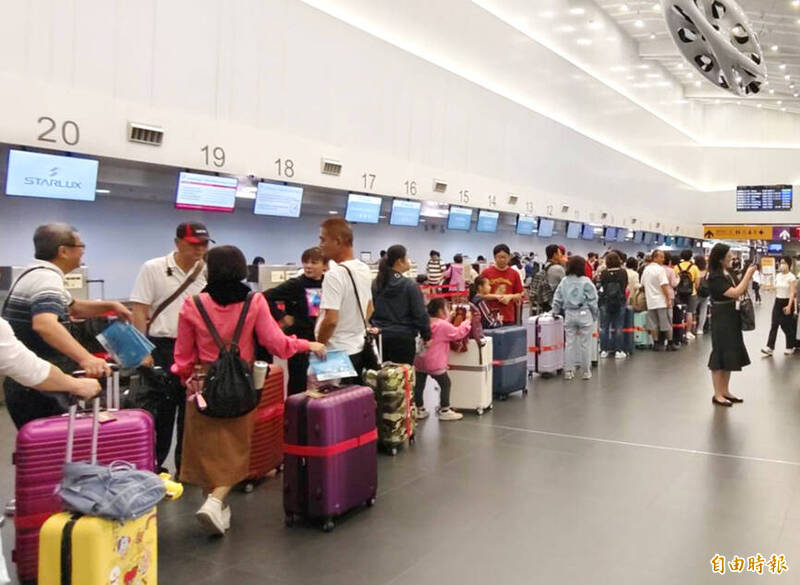Politics
Taiwanese Airlines Ban Bluetooth Earbuds in Checked Luggage

Three Taiwanese airlines have implemented a ban on packing Bluetooth earbuds and their charger cases in checked luggage due to international aviation safety regulations. This decision affects passengers flying with EVA Air and Uni Air, which have stated that these devices must not be in standby or sleep mode when placed in checked bags. As such, they must be carried as hand luggage instead.
The rationale behind this policy is that Bluetooth earbuds and their charging cases are classified as portable electronic devices. When stored in checked luggage, these devices should be completely turned off to comply with safety standards. However, since charging occurs when earbuds are placed in their cases, keeping them in checked luggage violates aviation regulations.
Tigerair Taiwan has noted that earbud charger cases contain built-in lithium-ion batteries, similar to those in portable electric fans, which are also prohibited in checked luggage. Other airlines such as Starlux Airlines, China Airlines, and Mandarin Airlines do not have specific regulations regarding earbuds and their chargers. Nonetheless, Starlux Airlines emphasizes that all portable electronic devices in checked luggage must be completely powered down during flights.
Passengers traveling with China Airlines and Mandarin Airlines are advised to keep their earbuds and charger cases in hand luggage. Both airlines reiterate that lithium-ion batteries and portable chargers are prohibited in checked bags for safety reasons.
In a related incident, ferry passengers traveling on the Nanhai Star 1, which operates between islets in Penghu County, are also facing restrictions on portable chargers. Following an incident where a passenger’s charger ignited before departure, the Maritime and Port Bureau has mandated that portable chargers must not be packed in checked luggage.
The Bureau of Standards, Metrology and Inspection has issued guidelines urging passengers to ensure that their chargers have the necessary certifications before boarding ferries. Passengers are reminded that chargers should be kept in sight at all times and are advised against using damaged or overheated chargers to prevent safety risks.
These measures reflect a growing emphasis on safety in both air and maritime travel, as authorities seek to mitigate risks associated with lithium-ion batteries and electronic devices.
-

 Lifestyle3 months ago
Lifestyle3 months agoHumanism Camp Engages 250 Youths in Summer Fest 2025
-

 Sports3 months ago
Sports3 months agoDe Minaur Triumphs at Washington Open After Thrilling Comeback
-

 Business4 months ago
Business4 months agoKenvue Dismisses CEO Thibaut Mongon as Strategic Review Advances
-

 Sports4 months ago
Sports4 months agoTupou and Daugunu Join First Nations Squad for Lions Clash
-

 Top Stories4 months ago
Top Stories4 months agoColombian Senator Miguel Uribe Shows Signs of Recovery After Attack
-

 World4 months ago
World4 months agoASEAN Gears Up for Historic Joint Meeting of Foreign and Economic Ministers
-

 Business4 months ago
Business4 months agoOil Prices Surge Following New EU Sanctions on Russia
-

 Health3 months ago
Health3 months agoNew Study Challenges Assumptions About Aging and Inflammation
-

 Entertainment3 months ago
Entertainment3 months agoDetaşe-Sabah Violin Ensemble Captivates at Gabala Music Festival
-

 Entertainment3 months ago
Entertainment3 months agoBaku Metro Extends Hours for Justin Timberlake Concert
-

 Business4 months ago
Business4 months agoU.S. House Approves Stablecoin Bill, Sends to Trump for Signature
-

 Top Stories4 months ago
Top Stories4 months agoRethinking Singapore’s F&B Regulations Amid Business Closures









